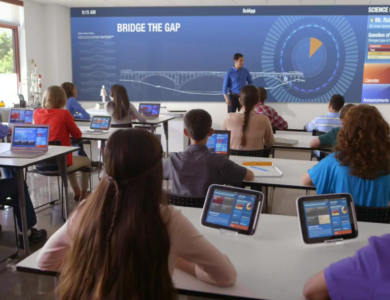
In today’s rapidly evolving world, modern women face unique challenges and opportunities that require a diverse set of life skills to navigate successfully. The contemporary woman juggles multiple roles – professional, personal, social, and often caregiving responsibilities – making it crucial to develop 15 Essential Life Skills that foster independence, confidence, and resilience.
Gone are the days when traditional gender roles defined a woman’s capabilities and aspirations. Today’s women are breaking barriers, leading organisations, starting businesses, and reshaping society. However, with these expanded opportunities comes the need for a comprehensive toolkit of practical skills that enable success across all areas of life.
The skills for women discussed in this article aren’t just about surviving in the modern world; they’re about thriving. These competencies span financial literacy, emotional intelligence, professional development, personal safety, and self-care. Each skill represents a building block toward creating a fulfilling, balanced, and empowered life.
Whether you’re a recent graduate entering the workforce, a career-changer pursuing new opportunities, or someone looking to enhance your personal development, mastering these fundamental life skills will provide you with the confidence and capability to tackle whatever challenges come your way. Let’s explore the 15 most crucial skills that every modern woman should prioritise developing.
1. Financial Literacy and Money Management
Financial literacy stands as one of the most critical life skills for modern women. Understanding personal finance, budgeting, investing, and debt management creates a foundation for long-term security and independence.
Women often face unique financial challenges, including wage gaps, career interruptions for caregiving, and longer life expectancy, requiring more retirement savings. Developing money management skills involves learning to create and stick to budgets, understanding different investment options, building emergency funds, and planning for retirement.
Start by tracking your expenses, understanding your credit score, and educating yourself about basic investment principles. Consider working with a financial advisor or taking online courses to deepen your financial knowledge. The goal is to make informed decisions about your money rather than feeling overwhelmed or dependent on others for financial guidance.
2. Digital Literacy and Technology Skills
In our increasingly digital world, technology skills have become non-negotiable for personal and professional success. Digital literacy encompasses everything from basic computer operations to understanding social media privacy settings and recognising online scams.
Modern women need to be comfortable with essential software applications, online communication tools, and digital security practices. This includes understanding how to protect personal information online, using productivity apps effectively, and staying current with technological trends that impact your industry.
Consider this an ongoing education rather than a one-time learning experience. Technology evolves rapidly, and maintaining digital competency requires continuous learning and adaptation.
3. Effective Communication and Public Speaking

Communication skills form the cornerstone of personal and professional relationships. For modern women, the ability to articulate thoughts clearly, listen actively, and present ideas confidently can significantly impact career advancement and personal satisfaction.
Public speaking remains one of the most feared activities, yet it’s incredibly valuable for professional growth. Whether presenting to colleagues, speaking at community events, or advocating for causes you believe in, strong verbal communication skills open doors and create opportunities.
Practice active listening, learn to give and receive constructive feedback, and work on your presentation skills. Join organisations like Toastmasters or take communication courses to build confidence in various speaking situations.
4. Emotional Intelligence and Self-Awareness
Emotional intelligence (EI) involves understanding and managing your emotions while effectively navigating social relationships. For modern women balancing multiple responsibilities, high EI is essential for stress management, leadership effectiveness, and maintaining healthy relationships.
Self-awareness – understanding your strengths, weaknesses, values, and triggers – forms the foundation of emotional intelligence. This skill helps you make better decisions, communicate more effectively, and build stronger professional and personal relationships.
Develop emotional intelligence through mindfulness practices, regular self-reflection, seeking feedback from others, and learning to recognise emotional patterns in yourself and others.
5. Time Management and Productivity
With competing demands on their time, modern women must master time management to achieve work-life balance and personal goals. Productivity skills involve more than just staying busy; they’re about focusing energy on activities that align with your priorities and values.
Effective time management involves learning to prioritise tasks, set boundaries, delegate when possible, and decline commitments that don’t align with your goals. Understanding your productivity patterns – when you’re most focused and energetic – helps optimise your schedule.
Utilise productivity tools and techniques like time-blocking, the Pomodoro Technique, or digital planners to organise your responsibilities and create more intentional use of your time.
6. Critical Thinking and Problem-Solving
Critical thinking enables you to analyse information objectively, question assumptions, and make well-reasoned decisions. In an era of information overload and “fake news,” the ability to evaluate sources, identify bias, and think independently is invaluable.
Problem-solving skills complement critical thinking by providing frameworks for addressing challenges creatively and effectively. This involves breaking down complex problems, considering multiple solutions, and implementing strategies while learning from outcomes.
Develop these skills by questioning information sources, practising different problem-solving methodologies, and challenging yourself to consider alternative perspectives on issues that matter to you.
7. Networking and Relationship Building
Professional networking and relationship building are crucial for career advancement and personal growth. Modern women benefit enormously from cultivating diverse professional and personal networks that provide support, opportunities, and different perspectives.
Effective networking isn’t about collecting business cards; it’s about building genuine relationships based on mutual respect and shared interests. This includes maintaining connections over time, offering help to others, and being authentic in your interactions.
Attend industry events, join professional organisations, participate in online communities, and maintain relationships through regular communication. Remember that networking is a two-way street – always consider how you can add value to others’ lives and careers.
8. Self-Defence and Personal Safety
Personal safety skills provide confidence and peace of mind in various situations. While we shouldn’t live in fear, being prepared and aware can help prevent dangerous situations and provide options if they arise.
Self-defence encompasses both physical techniques and situational awareness. This includes trusting your instincts, understanding your surroundings, learning basic physical defence moves, and knowing how to de-escalate potentially dangerous situations.
Consider taking self-defence classes, learning about personal safety devices, and developing confidence in your ability to protect yourself. The goal is empowerment, not paranoia.
9. Basic Home and Car Maintenance
Practical skills like basic home and car maintenance save money and increase independence. You don’t need to become an expert mechanic or contractor, but understanding fundamental maintenance tasks reduces reliance on others and helps you make informed decisions about repairs and services.
For home maintenance, learn basic skills like changing light bulbs, unclogging drains, painting walls, and understanding your electrical panel. For car maintenance, know how to check fluids, change a tire, jump-start a battery, and recognise signs of common problems.
These hands-on skills also provide satisfaction and confidence that comes from being self-sufficient in practical matters.
10. Cooking and Nutrition
Cooking skills and nutritional knowledge directly impact health, budget, and quality of life. Preparing your meals gives you control over ingredients, portion sizes, and costs while providing a creative outlet and stress relief.
Understanding basic nutrition helps you make informed food choices that support your energy levels, health goals, and overall well-being. This doesn’t require becoming a chef or nutritionist, but having fundamental knowledge about balanced eating and meal preparation.
Start with simple, healthy recipes and gradually expand your repertoire. Learn about food safety, meal planning, and how to shop efficiently for groceries.
11. Stress Management and Mental Health Care
Stress management and mental health awareness are essential for navigating modern life’s demands. Chronic stress impacts physical health, relationships, and performance, making it crucial to develop healthy coping strategies.
Effective stress management includes identifying stress triggers, developing healthy coping mechanisms, maintaining work-life boundaries, and knowing when to seek professional help. This might involve meditation, exercise, therapy, or other stress-reduction techniques.
Prioritise mental health as you would physical health, and don’t hesitate to seek support when needed. Understanding that mental health care is a sign of strength, not weakness, is crucial for women who often put others’ needs before their own.
12. Basic First Aid and Health Knowledge
First aid skills can be life-saving in emergencies. Basic knowledge of CPR, wound care, and emergency response procedures provides confidence and capability when accidents or medical emergencies occur.
Beyond emergency response, understanding basic health literacy helps you make informed decisions about your healthcare, communicate effectively with medical professionals, and advocate for yourself in medical settings.
Consider taking certified first aid and CPR courses, learn to recognise signs of common medical emergencies, and maintain a well-stocked first aid kit at home and in your car.
13. Leadership and Teamwork

Leadership skills aren’t just for managers – they’re valuable in all aspects of life. Modern women benefit from developing the ability to inspire others, make decisions, delegate effectively, and create positive change in their communities and workplaces.
Teamwork abilities complement leadership skills by helping you collaborate effectively, contribute meaningfully to group efforts, and navigate diverse personalities and working styles.
Practice leadership through volunteer opportunities, workplace projects, or community involvement. Focus on developing empathy, decision-making abilities, and the skill to motivate and inspire others.
14. Negotiation and Advocacy
Negotiation skills impact everything from salary discussions to personal relationships. Women often underestimate their negotiation abilities, but these skills can be learned and improved with practice.
Self-advocacy – the ability to speak up for your needs, rights, and interests – is equally important. This includes negotiating fair compensation, advocating for professional opportunities, and ensuring your voice is heard in important decisions.
Practice negotiation in low-stakes situations, research fair market values for your skills and services, and learn to present your case confidently and persuasively.
15. Continuous Learning and Adaptability
Lifelong learning and adaptability are perhaps the most critical skills for thriving in our rapidly changing world. The ability to acquire new knowledge, adapt to changing circumstances, and remain curious and open-minded ensures continued growth and relevance.
Personal development should be an ongoing priority, whether through formal education, online courses, reading, or experiential learning. Stay curious about the world around you and maintain a growth mindset that views challenges as opportunities to learn and improve.
Embrace change as a constant rather than something to fear, and develop resilience that helps you bounce back from setbacks and adapt to new circumstances.
For More: Free Adult Education 7 Amazing Breakthroughs in 2025
Conclusion
Mastering these 15 essential life skills empowers modern women to navigate contemporary challenges with confidence and capability. While it may seem overwhelming to develop all these competencies, remember that skill development is a lifelong journey, not a destination.
Start by identifying which skills are most relevant to your current situation and goals. Focus on developing one or two skills at a time rather than trying to master everything simultaneously. Many of these life skills complement and reinforce each other, so progress in one area often supports growth in others.
The modern woman who invests in developing these essential skills creates a foundation for success, independence, and fulfilment across all areas of life. Whether you’re just starting your career or looking to enhance your existing capabilities, these skills will serve you well throughout your journey.
Remember that seeking help, taking courses, or working with mentors to develop these skills isn’t a sign of weakness – it’s a strategic investment in your future success and happiness.
FAQs
Q1: How long does it take to develop these essential life skills?
A: The timeline varies significantly depending on the skill and your starting point. Some basic skills, like simple cooking or home maintenance, can be learned in weeks, while others, like emotional intelligence or leadership, may take years to develop fully. The key is to view skill development as an ongoing process rather than a finite goal.
Q2: Which life skills should I prioritise first as a young woman entering the workforce?
A: Focus on financial literacy, communication skills, and time management as your foundation. These three skills will immediately impact your professional success and personal well-being. Once you’re comfortable with these, gradually add other skills based on your career goals and personal interests.
Q3: Can these life skills be learned online, or do I need in-person instruction?
A: Many of these skills can be learned through online resources, including courses, tutorials, and educational platforms. However, skills like self-defence, first aid, and public speaking often benefit from in-person instruction and practice. Consider a blended approach using online resources supplemented with hands-on experiences.
Q4: How do I find time to develop these skills while managing work and personal responsibilities?
A: Start small and integrate skill development into your existing routine. Listen to financial literacy podcasts during commutes, practice cooking healthy meals you need to prepare anyway, or join professional networking events that combine career development with social interaction. Even 15-30 minutes per day can lead to significant progress over time.
Q5: Are these life skills equally crucial for women in all cultures and countries?
A: While the fundamental importance of these skills is universal, their specific applications and priorities may vary based on cultural context, economic conditions, and social structures. Adapt the list to reflect your particular circumstances while maintaining focus on building independence, confidence, and capability in areas most relevant to your situation.



